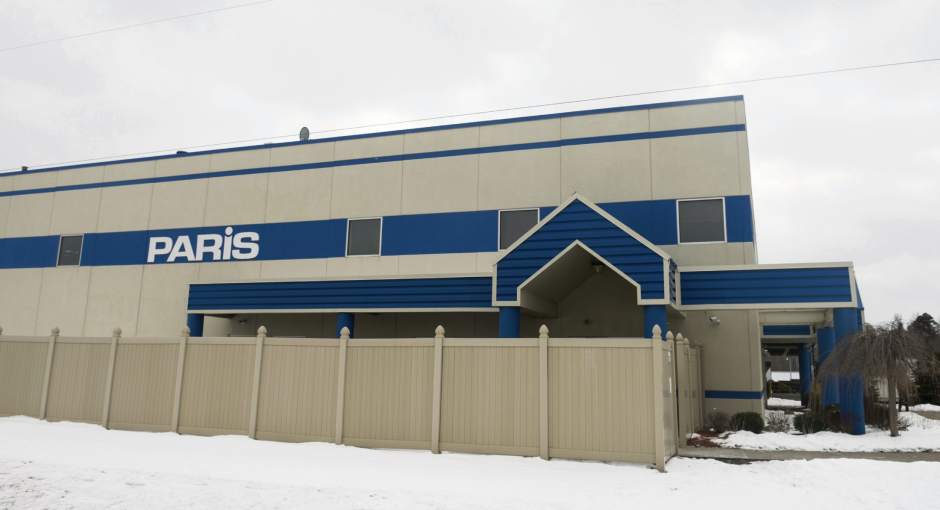A DuBois linen supplier entangled in several wrongful death lawsuits connected to the UPMC mold crisis maintains that the health care giant was responsible for making sure patients with vulnerable immune systems received special bedding to protect them against ever-present fungi.
“To the extent that an immunosuppressed patient should have been provided sterile linens, such a scenario entails a medical judgment to be made by the professionals at UPMC,” attorneys for Paris Cleaners Inc. wrote in a legal response Wednesday to three lawsuits in Allegheny County Court of Common Pleas.
Paris Cleaners, parent company of Paris Healthcare Linen Service, supplies linens to 22 UPMC facilities, including three hospitals named in negligence and wrongful death lawsuits by families of patients who suffered fungal infections and died.
The families, through Pittsburgh attorneys Brendan Lupetin and Jerry Meyers, named Paris as a defendant Jan. 26 after an internal UPMC report surfaced indicating samples taken from hospital bed linens contained rhizopus mold, the same type that infected the patients.
Paris countered in legal objections to the lawsuits that linens examined by mold expert Andrew Streifel, who was paid by UPMC to investigate the linens, did not test positive for rhizopus in the company's plant.
“Paris expressly denies that any linens were contaminated with mold at its facility,” wrote its Lancaster-based attorneys, Gregory Hirtzel and Francis Camarata.
Streifel's May 2 report indicated that he found the “heavy” presence of rhizopus on freshly cleaned linen delivered from Paris to UPMC Montefiore when he tested them at the hospital. He also reported that the sheets on the cart were wet.
Inside the Paris plant, “the cart bins used to transport clean laundry were observed to have some bins that were wet inside,” he wrote in his report, recommending that both parties develop moisture detection methods in linen delivery.
Streifel also reported rhizopus on the roof near the air intakes at the Paris plant.
Paris countered that rhizopus “is widespread in the environment; people frequently come into contact with rhizopus without resulting harm, unless the person is immunosuppressed.”
Paris' attorneys wrote in its legal objection that “UPMC — not Paris — had a duty to ensure that appropriate linens were provided to immunosuppressed patients.”
UPMC responded with a statement Wednesday, insisting its hospitals are safe.
“Our ongoing monitoring and testing show no evidence of a mold outbreak,” the statement said. “We've gone above and beyond any existing guidelines and CDC recommendations for preventing these infections. However, we will address the specific allegations in this case in court and not in the media.”
Lupetin pointed out that Streifel found flaws in the Paris plant, such as visible dust and debris, in addition to the rhizopus on the roof.
“We are disappointed that Paris has chosen to point the finger at UPMC instead of accepting any responsibility despite the conditions at the laundry facility described by Mr. Streifel,” Lupetin said.
At least six people are alleged to have died after acquiring fungal infections at UPMC hospitals between October 2014 and October 2016. Five were transplant patients; a sixth, John R. Haines, was a cancer patient.
Two families have settled cases with UPMC for $1.35 million apiece. Three lawsuits brought by Lupetin and Meyers against UPMC and Paris are ongoing.
Paris continues to do business with UPMC.
On Sept. 21, 2015, UPMC shut down its prestigious adult organ transplant program because transplant patients got fungal infections. The program restarted six days later, and UPMC announced that a new precaution would require that linens remain wrapped in plastic until they are used in the Intensive Care Units.
A subsequent CDC investigation did not find an exact source of the mold infections. However, it pointed to a so-called negative pressure room in the cardiothoracic ICU at UPMC Presbyterian as a possibility. A negative pressure room draws air into the room and does not allow air inside to circulate into other patient areas, to prevent the spread of viruses or infectious diseases. The patients in question who acquired fungal infections in that Presby negative pressure room did not have infectious diseases.
After the CDC issued its report, UPMC agreed to stop putting transplant patients in negative pressure rooms.
Streifel, a hospital environment specialist with the University of Minnesota's department of environmental health and safety, told the Tribune-Review in January that he still suspects linens were the source of the patients' fungal infections. However, the CDC report did not address linens as a potential source, and the state Department of Health said it was not influenced by Streifel's findings.
Ben Schmitt is a Tribune-Review staff writer. Reach him at 412-320-7991 or bschmitt@tribweb.com.











